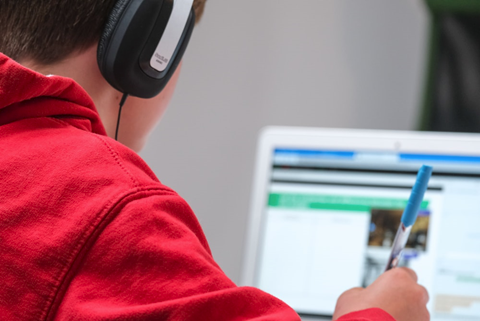AASA report outlines path to systemic change in public education by 2025 – By Kara Arundel, Education Dive
Schools and classrooms across the nation need to implement systemic changes that support personalized and rigorous learning based on equitable practices, a group of education, business, advocacy and philanthropic leaders said in a report published Thursday by AASA, The School Superintendents Association.
Although the report outlines core component areas for school redesign improvements and specific steps to meet those recommendations, the leaders’ work is ongoing and will continue with the release of case studies of demonstration school districts and virtual forums to share success stories.
The report emphasizes a school system’s transformation is not a quick, one-time process, but rather a comprehensive multi-year, multi-layered and stakeholder-inclusive journey. However, the report urges school leaders to start the process now so a holistic redesign of the public school system can be reached by 2025.

Colorado could get a state-level early childhood agency – By Ann Schimke, Chalkbeat
Colorado could get a new stand-alone state agency dedicated to early childhood programs if lawmakers act on a recommendation approved Tuesday by a state advisory group.
The idea is to consolidate programs and services for children birth to 5 and their families in a single cabinet-level department. Currently, early childhood programs are spread among multiple state agencies, including the Department of Education, the Department of Human Services, the Department of Public Health and Environment, and the Department of Health Care Policy and Financing.
While the new agency is not a sure thing since lawmakers must pass legislation to create it, Tuesday’s vote was a momentous one for the state’s early childhood advocates. A new early childhood agency would elevate the stature of issues affecting Colorado’s youngest children and — if all goes as planned — reduce red tape and regulatory conflicts for families and child care providers.
Early childhood leaders said it’s too early to say which programs would be moved out of their current departments into a new early childhood agency, but possibilities include the state’s public preschool program and its child care subsidy program.

State budget to bring a long-awaited windfall for NYC schools – By Michael Elsen-Rooney, New York Daily News
A state budget agreement that coalesced Tuesday includes a long-awaited windfall for New York City schools that could pad the city education budget by more than $1 billion annually by 2023.
Legislative budget documents released Tuesday include an agreement to fully fund the state’s court-mandated “Foundation Aid” formula for distributing money to school districts based on need.
State education funding currently falls about $4 billion short of the amount the formula calls for — a shortfall that advocates and lawmakers have been fighting to reverse for more than a decade.
The budget agreement will phase in the additional funding over three years, with state foundation aid spending likely to increase by roughly $1.4 billion each of the next three years.

Survey: Even as schools reopen, many students learn remotely – By Collin Binkley, The Associated Press
Large numbers of students are not returning to the classroom even as more schools reopen for full-time, in-person learning, according to a survey released Wednesday by the Biden administration.
The findings reflect a nation that has been locked in debate over the safety of reopening schools during the coronavirus pandemic. Even as national COVID-19 rates continued to ebb in February, key measures around reopening schools barely budged.
Nearly 46% of public schools offered five days a week of in-person learning to all students in February, according to the survey, but just 34% of students were learning full time in the classroom. The gap was most pronounced among older K-12 students, with just 29% of eighth graders getting five days a week of learning at school.
With the new findings, President Joe Biden came no closer to meeting his goal of having most elementary schools open five days a week in his first 100 days. School offerings were nearly identical to what was reported a month before. But among eighth grade students, there was a slight shift from fully remote to hybrid learning.












